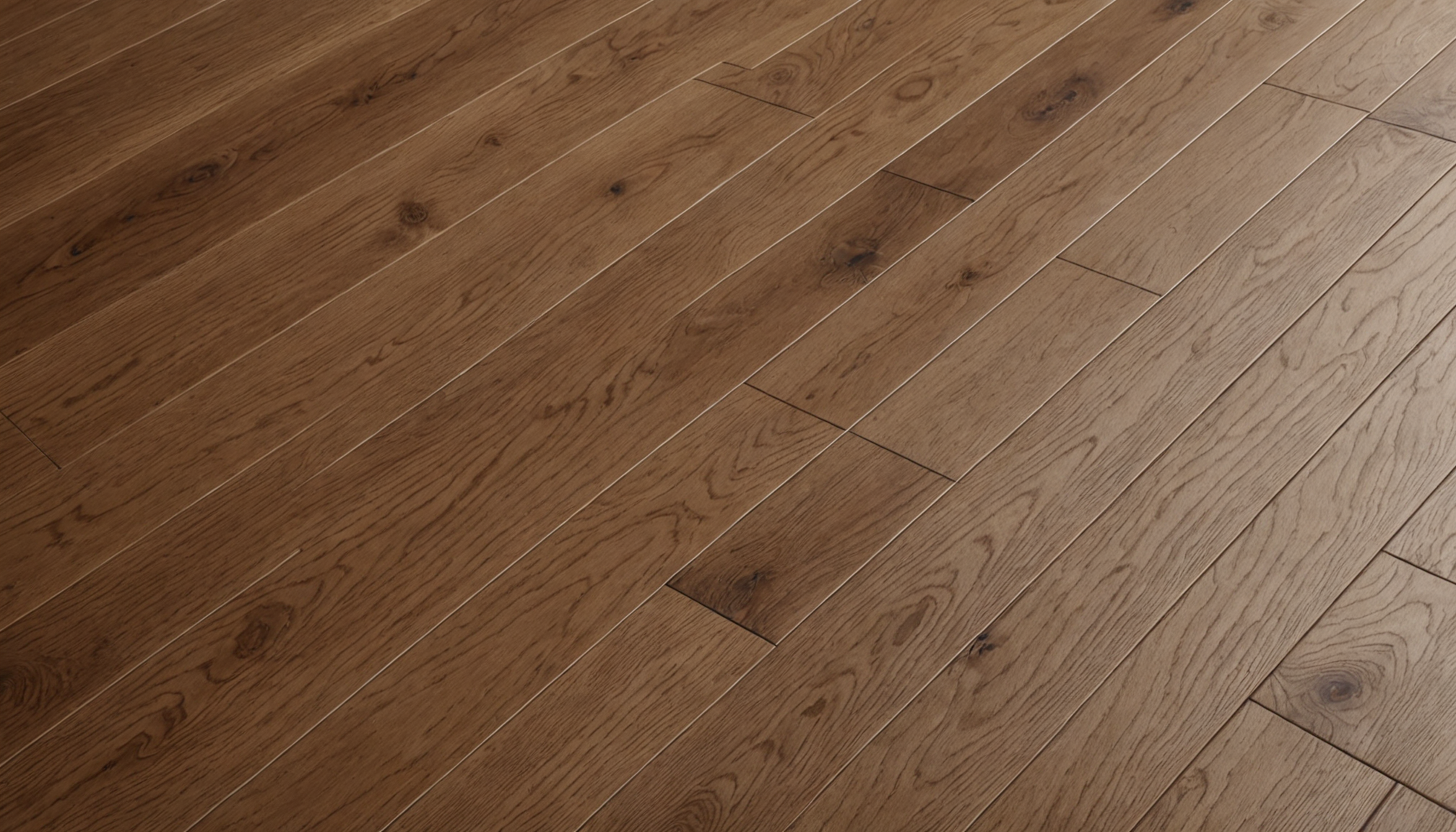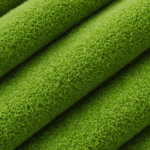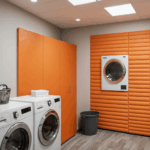Choosing the right materials for flooring upgrades can significantly influence the resale value of a property, transforming spaces not only aesthetically but also functionally. The selection process involves several factors that reinforce both the practicality and visual appeal of the flooring, aligning with market demands and future buyers’ preferences. Here are some essential considerations when selecting flooring materials:
- Durability and Lifespan: The longevity of flooring materials is a crucial aspect of their value proposition. Opting for materials known for their resilience can mitigate the need for early replacement or repair, thus maintaining the property’s value over time. For instance, hardwoods such as oak and maple are famed for their endurance.
- Maintenance Requirements: Potential buyers often consider the ease of maintaining the flooring. Surfaces that are easy to clean and do not require frequent upkeep tend to be more appealing. Ceramic tiles and luxury vinyl, for instance, are known for low maintenance.
- Cost-effectiveness: The budget plays a vital role in material selection. While some materials like marble or exotic hardwoods offer great visual appeal, they also come with a higher price tag. Balancing cost with quality ensures that the investment will be recouped during resale.
- Aesthetic Compatibility: The chosen flooring should complement the overall design theme of the home. Consistency in style between the interior and the flooring is key to creating a harmonious environment. Neutral tones and timeless patterns often appeal to a broader audience.
- Sustainability: Eco-friendly options have become increasingly popular. Materials like bamboo and cork are not only sustainable but also attractive, providing an added selling point to environmentally conscious buyers.
To effectively evaluate these considerations, it is useful to compare different flooring materials based on these factors. The table below provides a comparative overview:
| Material | Durability | Maintenance | Cost | Sustainability |
| Hardwood | High | Moderate | High | Moderate |
| Ceramic Tile | Very High | Low | Moderate to High | Low |
| Luxury Vinyl | High | Low | Moderate | Moderate |
| Bamboo | Moderate to High | Moderate | Moderate | High |
| Cork | Moderate | Moderate | Moderate | High |
When selecting materials, it’s important to balance these factors to ensure the choice enhances the home’s marketability. Advances in material technology and changing consumer preferences mean that there are more options than ever in flooring materials, each with its unique advantages. Whether prioritizing aesthetics, sustainability, or budget, thoughtful choices in flooring materials can lead to a successful upgrade that boosts a property’s resale value.
Hardwood flooring options
When considering traditional hardwood flooring options to boost your home’s resale value, the variety and prestige these floors offer are unmatched. Hardwood flooring is not only a classic choice but also a vital investment in the property. Here is a guide on the various hardwood options available, along with tips on choosing the best type for your needs:
1. Oak Flooring:
– Types: Red Oak and White Oak are the most common choices.
– Characteristics: Red Oak has a warm, reddish hue and a prominent grain pattern, while White Oak is known for its cooler tones and tighter grain.
– Benefits: Both types of oak are incredibly durable and can withstand high foot traffic, making them ideal for busy households. Oak is also resistant to wear and can be easily refinished multiple times.
– Considerations: Its popularity means oak flooring can appeal to a wide range of buyers, enhancing the overall market value of your home.
2. Maple Flooring:
– Characteristics: Known for its clean and uniform appearance, maple offers a light color that can brighten up living spaces.
– Benefits: Maple’s hardness makes it slightly more resistant to dings and scratches, ideal for families with pets and children.
– Considerations: Its mild grain pattern makes it highly versatile and suitable for both contemporary and traditional designs, expanding its appeal to different buyer tastes.
3. Hickory Flooring:
– Characteristics: Hickory has a distinctive grain pattern with bold variations in color, providing a rustic and unique look.
– Benefits: It is one of the hardest domestic woods, offering exceptional durability.
– Considerations: Due to its striking appearance, hickory might not be for everyone, so it’s best suited for specific decor themes where a rugged or country aesthetic is preferred.
4. Walnut Flooring:
– Characteristics: Walnut is prized for its rich, dark brown color and sophisticated grain.
– Benefits: Its elegance can elevate the luxury feel of any home, making it particularly appealing to high-end buyers.
– Considerations: Walnut is softer compared to other hardwoods, so it’s better suited for low-traffic areas to maintain its pristine appearance.
5. Cherry Flooring:
– Characteristics: Cherry wood offers a rich, reddish-brown color that darkens with age, giving it a distinct charm.
– Benefits: Its smooth texture and lustrous finish make it a popular choice for formal areas like dining rooms and offices.
– Considerations: Cherry is softer and might not be suitable for areas with heavy activity but works perfectly to add elegance to less-trafficked spaces.
To choose the right hardwood option, consider the room’s intended use, the overall aesthetic you want to achieve, and the practicality of maintenance. Beyond personal preference, think about the home’s location and the tastes of likely buyers in that area. Choosing the right hardwood can not only enhance your living space but also provide a lucrative return on investment by boosting your home’s appeal and resale value.
The appeal of engineered wood
When it comes to balancing affordability with the natural charm of wood, engineered wood has increasingly become a popular choice for homeowners looking to upgrade their flooring. Offering a fusion of beauty and practicality, it serves as a compelling alternative to traditional hardwood.
Durability and Stability: Engineered wood is constructed with multiple layers of plywood topped with a layer of hardwood, providing enhanced stability and resistance to environmental changes. Unlike solid hardwood that can warp or expand in humid conditions, engineered wood is more resilient to moisture, making it an excellent choice for areas prone to temperature fluctuations, such as basements or kitchens.
Aesthetic Versatility: Engineered wood is available in a vast array of finishes and wood species, including oak, cherry, and walnut, allowing homeowners to achieve the desired aesthetic without compromising on quality. This versatility means you can easily match the flooring with your home’s existing décor or design theme, enhancing the overall appeal.
Cost-Effectiveness: While engineered wood offers the visual appeal of hardwood, it typically comes at a more accessible price point. This makes it a cost-effective option for those seeking to enhance the look and feel of their home without overstretching their budget. As it can often be installed over existing floors without the need for complete demolition, it can significantly reduce renovation costs.
Ease of Installation: One of the standout features of engineered wood is the ease and speed of its installation. Many engineered wood products use a click-lock system, which can be installed as a floating floor, meaning there’s no need for nails or glue. This makes it an ideal choice for those who wish to take on a DIY project, saving additional labor costs in the process.
Value Enhancement: Because engineered wood often mimics the look of more expensive hardwood options, it can elevate a property’s market appeal with potential buyers who appreciate sophistication but are also conscious of practical considerations. Its ability to withstand varying conditions without compromising appearance means that it remains in excellent condition over time, further safeguarding the investment.
Environmental Considerations: For environmentally-conscious homeowners, engineered wood presents a more sustainable alternative to solid hardwood. Since the top layer is made of a thin slice of real wood, it utilizes fewer natural resources compared to solid wood floors. Choosing engineered wood can, therefore, reduce the environmental footprint of your renovation project.
Through its combination of practicality, beauty, and environmental benefits, engineered wood flooring stands out as an impactful flooring upgrade that enhances the resale value of a home. By selecting engineered wood, homeowners can achieve a luxurious look and feel while simultaneously appealing to eco-conscious buyers—a win-win for the modern housing market.
Luxury vinyl as a modern choice
Luxury vinyl flooring has emerged as a top contender for homeowners seeking a modern, versatile choice that enhances the aesthetic appeal and functionality of their living spaces. Known for its affordability and wide range of design options, this particular flooring material offers an array of benefits tailored to modern living demands, making it a highly attractive option for those looking to boost their home’s resale value.
Versatile Design Options: One of the standout qualities of luxury vinyl is its ability to mimic the appearance of more expensive flooring materials such as hardwood, stone, or ceramic tiles. With advanced printing technology, luxury vinyl can replicate a wide range of textures and patterns with impressive realism. This gives homeowners the flexibility to achieve the high-end look they desire without the associated costs or maintenance issues of natural materials.
Durability and Water Resistance: Luxury vinyl is engineered to withstand the wear and tear of daily life. It is highly resistant to scratches, scuffs, and spills, making it an excellent choice for high-traffic areas like kitchens, hallways, and living rooms. Its water-resistant properties also make it suitable for moisture-prone areas such as bathrooms and laundry rooms, broadening the scope of its application throughout the home.
Comfort and Sound Proofing: Compared to traditional tiles or natural stone flooring, luxury vinyl provides a softer and warmer underfoot experience. It often comes with a cushioned backing that offers enhanced comfort and soundproofing, ideal for creating a more tranquil and cozy environment. This feature can particularly appeal to families with young children or those who prefer a quieter space.
Low Maintenance and Easy Cleaning: One of the primary attractions of luxury vinyl is its low maintenance requirements. Most dirt and stains can be easily wiped away with a damp cloth or swept clean with a regular mop. This ease of maintenance is a major selling point for potential buyers who may not want the hassle of more intensive floor care routines.
Affordability and Cost-Effectiveness: Another significant advantage of luxury vinyl is its cost-effectiveness. While offering the visual appeal of high-end flooring materials, luxury vinyl is considerably more affordable, both in initial purchase cost and installation expenses. It offers homeowners a budget-friendly option that does not compromise on style or performance, making it an appealing choice for increasing resale value.
Simple Installation: The installation process for luxury vinyl is relatively straightforward, with options for both glue-down and click-lock systems. This flexibility allows for quicker installation times, saving on labor costs and reducing the disruption to daily life during home renovations. It also provides a viable DIY option for those looking to undertake home improvement projects themselves.
Luxury vinyl flooring combines beauty, practicality, and affordability, creating a modern solution that appeals to a wide range of homebuyers. By offering the luxury look without the high price tag or upkeep of traditional materials, it meets the demands of contemporary lifestyles and real estate markets. The incorporation of luxury vinyl into home upgrades can be a strategic move to enhance both the style and marketability of a property, ensuring that it stands out to potential buyers.
The rise of eco-friendly flooring
As the world places greater emphasis on sustainable living, eco-friendly flooring options have witnessed a significant surge in popularity. Homeowners are increasingly mindful of their environmental impact, and eco-friendly flooring provides an opportunity to align personal values with practical home upgrades that can enhance resale value.
Materials such as bamboo, cork, and reclaimed wood are at the forefront of this movement, offering both sustainable benefits and aesthetic appeal. Bamboo, for instance, is a highly renewable resource, growing faster than traditional hardwood trees, and is available in a variety of finishes that can fit a range of decor styles.
Cork flooring is sourced from the bark of cork oak trees, which regenerate their bark after harvesting, making this option particularly gentle on the environment. Besides its sustainable nature, cork provides natural insulation and cushioning, offering a comfortable underfoot experience. Its hypoallergenic properties also make it a healthier choice for home environments, appealing to potential buyers focused on wellness.
Reclaimed wood presents another eco-friendly option, adding unique character and history to any space. By repurposing wood from older structures or industries, it reduces waste and requires fewer new resources. Homes featuring reclaimed wood flooring often appeal to buyers seeking a distinctive yet environmentally conscious aesthetic.
Additionally, many manufacturers now offer carpets made from recycled materials or natural fibers, providing further engagement with eco-friendly options. As consumers become more savvy about their purchases, transparency regarding the sourcing and production of flooring materials can enhance a property’s desirability.
Investing in eco-friendly flooring can not only reduce the environmental footprint of a renovation project but also attract a growing market segment that prioritizes sustainability. By choosing flooring that champions environmental stewardship, homeowners can increase their property’s appeal and potential resale value, making it a savvy choice for modern real estate markets.
In conclusion, whether a homeowner chooses timeless hardwood, innovative luxury vinyl, versatile engineered wood, or sustainable eco-friendly materials, the right flooring upgrade can be a strategic investment. Each option has its unique benefits, designed to meet diverse tastes and market trends while enhancing the overall aesthetic and functional appeal of a home. Thoughtful choices in flooring can elevate a residential space, ensuring it resonates with a broad spectrum of prospective buyers and maximizes resale value.


